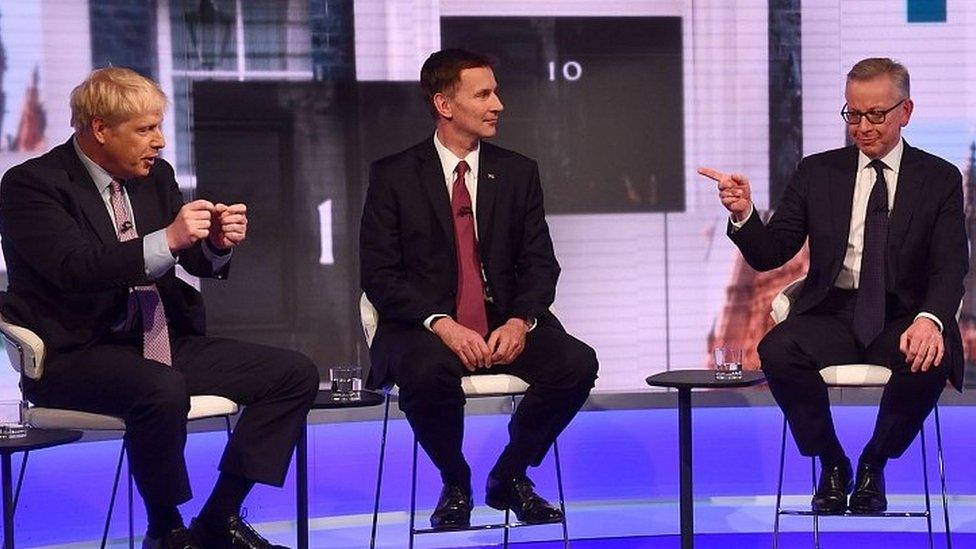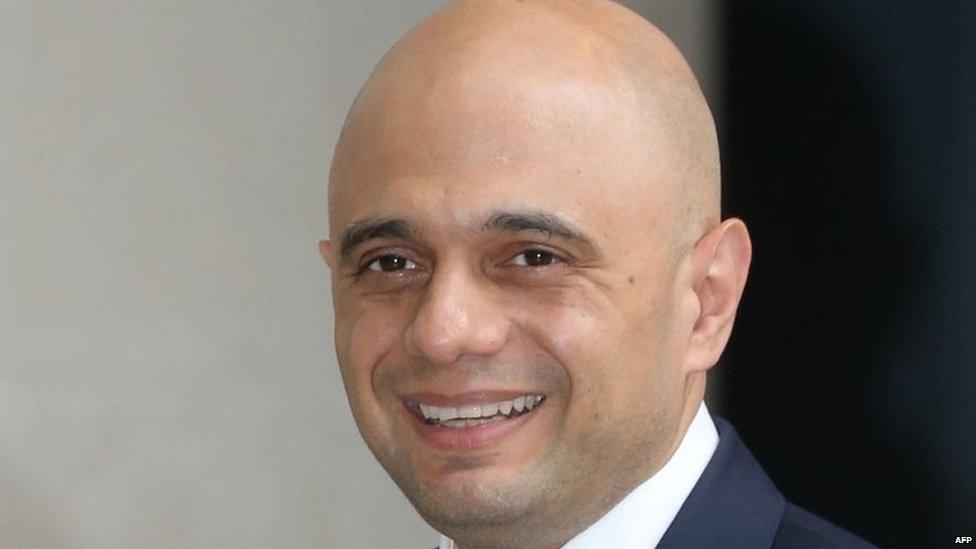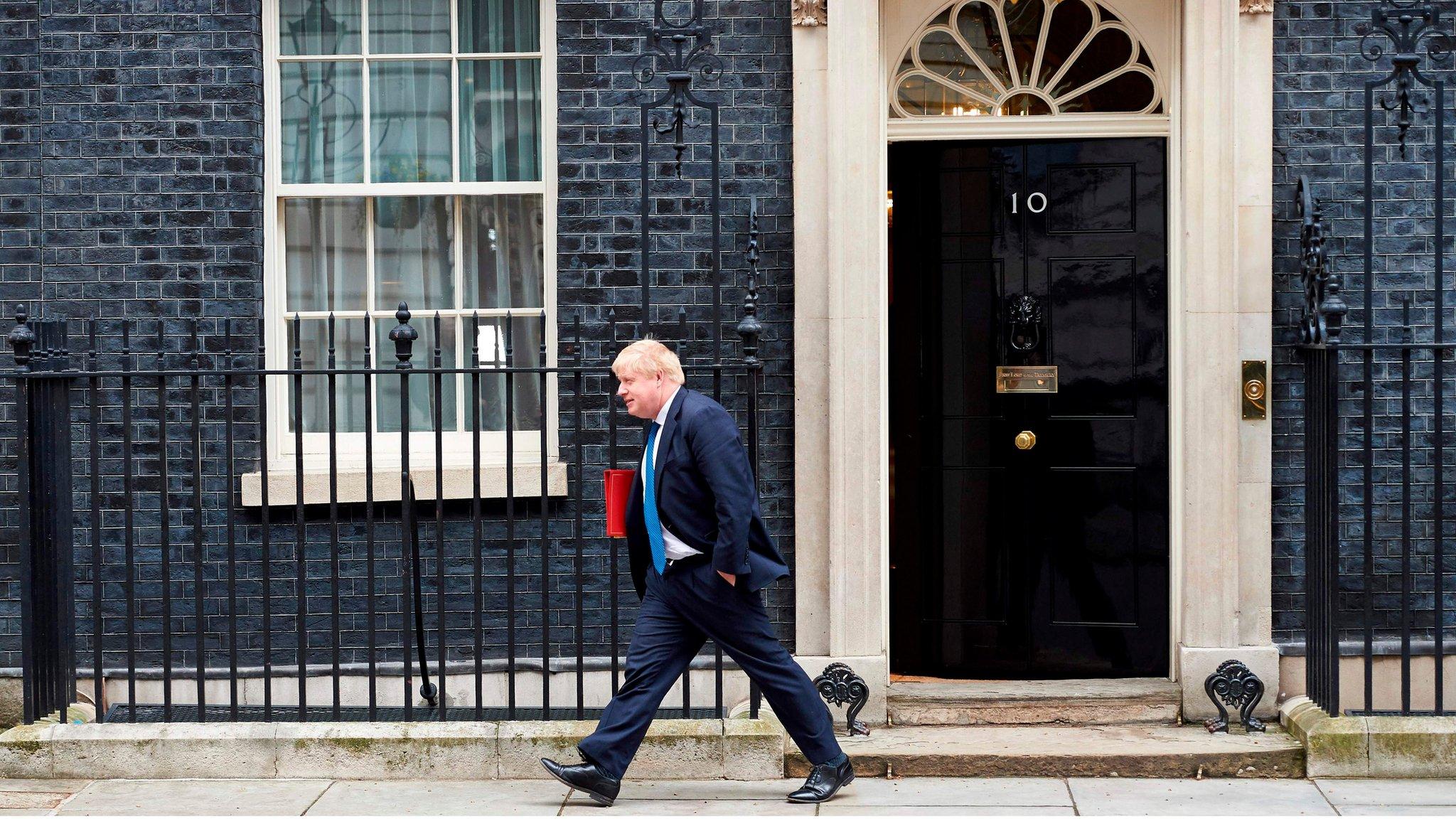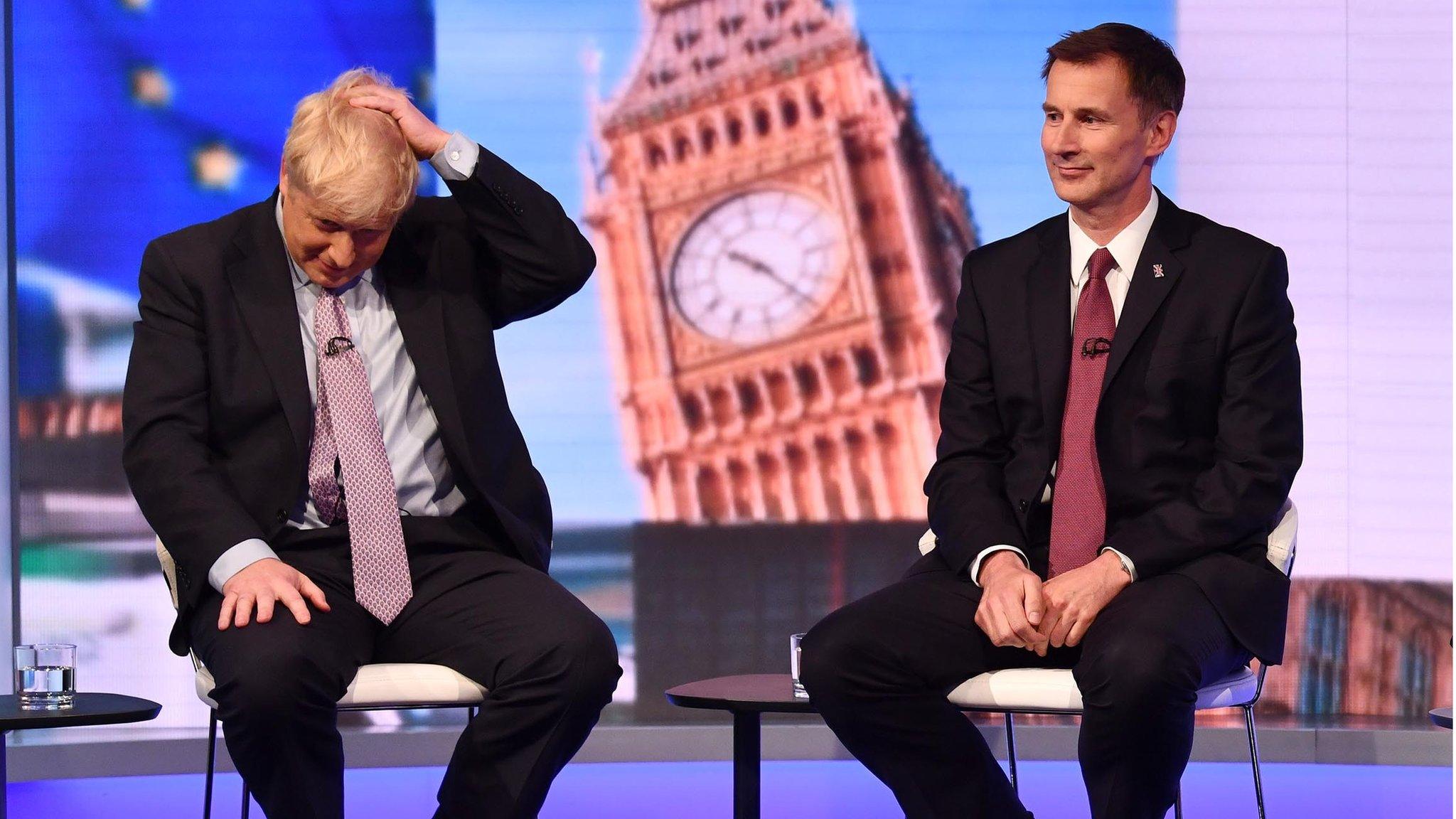The fluid battle to take on Boris Johnson
- Published

Both Jeremy Hunt and Michael Gove believe they can join Boris Johnson in the final two
After nine days and three rounds, it's almost decision time.
Tory MPs will vote, and vote again - perhaps up to late on Thursday night - until there are only two men left.
Barring some bizarre implosion, one of them is certain to be Boris Johnson - the politician who despite the wilful rollercoaster, has come determinedly back from the political brink.
For many months he was down, but evidently, never truly out. The contest to take him on is fluid and real.
Backers of Foreign Secretary Jeremy Hunt hope and still believe it could be his comparative sobriety and experience that see him through - the reassuring Home Counties pick to soothe the fevered brows of those who worry about Mr Johnson.
Fans of Michael Gove reckon his pitch as a pragmatic Brexiteer and his determination to pursue clever, if controversial reform, should see him on the ballot.
Yet Home Secretary Sajid Javid's team are adamant the race is suddenly interesting again, his candidacy a chance for the Tory party to move onto a next generation and to convey a different offer to a party that's been so hampered by divisions born in the past.

Sajid Javid is positioning himself as the change candidate as the contest nears its end
It's hard to read. Not just because the number of votes cast for them each don't put impossible distance between the three. Supporters of the dropout, Rory Stewart, won't automatically split evenly between the group.
And while they'll all deny it, conversations between the camps over different alliances will inevitably take place about whether they could join collective forces.
For some, the other member of the final pair has to be a Brexiteer to appeal to Tory members. Others fear a repeat of 2016's Johnson-Gove melodrama, a senior member of the government warning it would sow yet more seeds of bitterness and "destroy the next government".
The appeal of Mr Hunt's perceived competence is strong for his backers but might pale in comparison to a rival whose baggage and bravado might block out the sun.
Mr Javid is more able to convey a message that the party's ready to change, but maybe right now lacks the capacity to communicate with vigour what he is really about.
None of them, of course, will want to be the first to fold. It's not just that they might not be ready to give up their ambition, but how any choice to withdraw influences their own future.
This is not though just a contest, a decision for 313 individuals. Their choice will decide who has the chance to take on, and heal the scars in the warring Conservative party.
But also crucially who is allowed to try to lead Parliament out of Brexit's painful maze. And most importantly, who will shape the country for every one of us.
Whoever joins Mr Johnson in the final two, they'll spend the next few weeks vying to inherit a political system that's bruised and battered, where maybe not much makes sense anymore.
It's an unenviable task - yet for politicians, the greatest privilege and responsibility of all.
- Published23 July 2019

- Published18 June 2019

